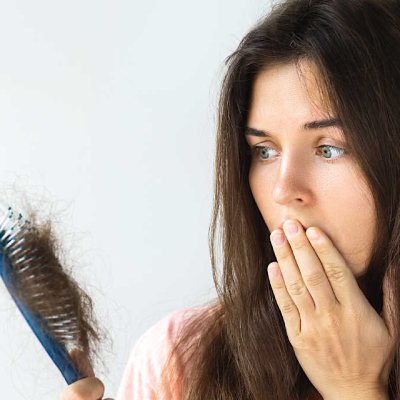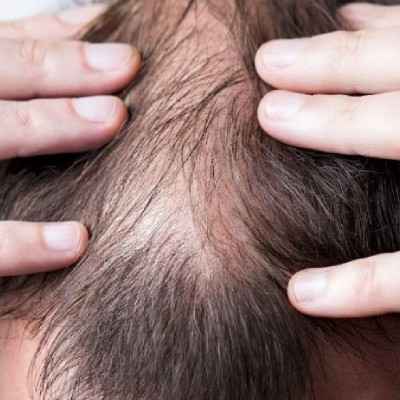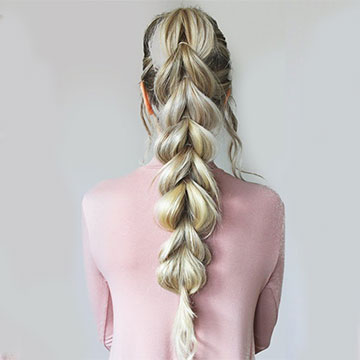Reasons Behind Hair Falling in Shower

01 August 2022

Hair Experts @ AHS

It's not only soap and dirt that you leave behind when you get out of the shower. Instead, you can discover hair clumps stuck to your drain. Hair loss may be caused by various elements, including diet changes and high-stress levels. The good news, however, is that hair shedding in the shower is completely normal for everyone, regardless of gender, even if you think the clump seems extra-large
It's not only soap and dirt that you leave behind when you get out of the shower. Instead, you can discover hair clumps stuck to your drain.
Hair loss may be caused by various elements, including diet changes and high-stress levels. The good news, however, is that hair shedding in the shower is completely normal for everyone, regardless of gender, even if you think the clump seems extra-large. Discover reasons for hair fall in the shower and when to seek professional help about hair loss if you see clumps of hair in your shower drain or elsewhere by continuing to read through.
Hair Shedding Vs. Hair Loss: What's The Difference?
* **Hair Shedding**50-100 hair strands per day are normal hair loss in the shower. People under stress, such as those who have just had a baby, undergone surgery, stopped using birth control pills, lost more than 10 kg of weight, or have faced any tumultuous situation lately, however, can experience severe hair loss. Most people experience significant hair shedding for a few months following a stressful event. This momentary shedding is normal. As your body acclimates, the shedding ceases. The hair regains its prior fullness in 6 to 9 months. It is claimed that if prolonged stressors are allowed to persist, they may result in long-term hair loss. * **Hair Loss**
On the other hand, hair loss is an entirely separate phenomenon. It denotes the point at which hair growth ceases. According to hair experts, heredity, immune system overreactions, harsh hair care products, or an urge to pluck your hair out are the most typical causes.
If you have hair loss, it won't stop until the source is addressed. For instance, many patients who undergo chemotherapy or radiation experience significant hair loss. The hair grows back when the treatment is stopped. However, you should see a professional if a certain hair treatment or hair colour is causing hair loss.
Both men & women experience hair loss, which affects them in various ways. A lady who suffers hereditary hair loss experiences gradual hair thinning over time. However, a male with the genes passed down to him may have a bald spot in the middle of his scalp or a receding hairline. * **The Difference**
You might be suffering from hair loss if you are losing more than the typical 100 strands per day or if you see that your hair is getting thinner. Remember that the best way to distinguish between hair loss and hair shedding is to see a professional. It might be challenging to distinguish between hair shedding and hair loss, but if you see more hair chunks on your pillow or comb, seek consultation from a hair expert professional.
In contrast to hair shedding, which is a physiological process, hair loss primarily results from outside influences, when something stops your hair from growing, hair loss results.
Causes of Hair fall In The Shower
* **Stress**Excessive hair loss may be brought on by emotional, physical, or psychological stress. Stress and hair loss are linked to each other. However, stress-induced hair loss is not permanent. Normal hair growth returns once the stressors have been removed. * **Hormonal Changes**
Hormonal changes, thyroid problems, and PCOS can also cause hair loss. Dihydrotestosterone (DHT) interferes with the natural hairline and inhibits hair regrowth. Consult a professional hair expert to seek ways to **stop hair fall** if you see no hair growth. * **Nutrient Deficiency**
An improper diet and nutrient deficiencies may bring on hair loss. Hair loss can be brought on by nutritional deficiencies in iron, zinc, fatty acids, niacin, selenium, vitamins A, D, and E, folic acid, amino acids, and antioxidants. You can eat food that is high in these nutrients. * **Rapid Weight Loss**
Rapid weight loss may result in telogen effluvium and hurt hair development. * **Wrong Products**
Hair loss may also result from using incorrect hair care products or those that include harsh substances. For instance, overusing sulphate shampoo can cause breakage and dry up the hair.
Tips To Prevent Hair Loss In The Shower

Follow these hair growth tips to avoid any more hair loss and know how to control hair fall:
* **Healthy Diet**Maintain a balanced, healthful diet. Consume foods high in folic acid, iron, and other vital vitamins and amino acids. Since protein is a component of hair, consuming protein-rich foods daily will help your hair grow strong and healthy and reduce excessive shedding. * **Use a broad-toothed comb.**
Hair shedding could also be a result of post-shower combing. To avoid this, begin detangling your hair at the ends of the strands and work your way up to the roots with a wide-toothed comb. * **Skip the Rubber Bands**
A tight ponytail can put stress on the hair roots. Rubber bands firmly grasp the hair, leading to increased hair loss. Use hair ties made of cotton or silk instead of rubber bands because they are gentler on your hair. * **Avoid overheating**
It is no surprise that overheating your hair can lead to breakage. Hair loss may eventually result from this. Therefore, refrain from overusing heat styling products like hair dryers and straighteners and appreciate the texture of your natural hair. Use a heat-protectant spray or cream and the lowest temperature setting if you use a heat-styling instrument.
When to Seek Professional Help?
It could be the correct time to seek professional help if you don't think stress could be the underlying cause or if you're still unsure. Patterned hair loss is one sign that may urge you to call a professional. The hair loss associated typically affects your entire head. You can notice a visible thinning of your hair if the hair loss is severe. Patchy hair loss is frequently the result of hair loss brought on by other disorders, like alopecia areata. It is another underlying cause of hair loss that is manageable.
However, Hair loss can be overwhelming and lead you to confusion about who you need to consult for your issues. Visit AHS Clinic and get an advanced hair check done by our experienced team of professionals who will tell you how to reduce hair fall and suggest the most suitable hair fall treatment from our wide range of procedures available for hair fall issues. Book an appointment now to bid goodbye to hair loss problems.
Frequently Asked Questions
**1. Is it normal for a lot of hair to fall out in the shower?**Even if the hair clumps seem excessively large, hair loss in the shower is typical for everyone, regardless of gender. **2. How do I prevent my hair from falling out in the shower?**
Reduce the amount of hair that falls out later in the shower by making changes like using a soft shampoo, letting your hair air dry after showering, or avoiding wearing tight hairstyles. **3. Is losing 300 hairs a day normal?**
Less than 100 hairs per day on average are lost during normal hair growth. It is odd to lose 200–300 hairs every day, especially given that you've noticed a sudden increase in the rate. It could be your body's way of coping with a disease, hormone imbalance, medicine, or any other element. **4. Is it normal for hair to fall out when I run my fingers through it?**
It is normal to notice a little hair when you run your fingers through your hair. You need to consult a hair expert if the hair loss is too much. **5. When I run my hands through my hair, it falls out?**
It is advised not to put a lot of pressure while running your fingers through your hair, even though a little hair loss is normal. **6. Can hot showers cause hair loss?**
Hot water showers can't cause hair loss. However, boiling water may cause hair loss by burning or scorching your scalp. Dry hair that is less lustrous and has a more unhealthy appearance results from using hot water, but not hair loss. **7. Do cold showers prevent hair loss?**
Cold water is slightly better for your hair as compared to warm water. Additionally, using cold water effectively prevents hair loss and dandruff.
Stay Updated
Subscribe to our email newsletter for helpful tips and valuable resourses
Be an influencer
Join forces with Advanced Hair Studio! Explore exciting collaboration opportunities tailored for influencers. Let's redefine haircare together.
Connect now












